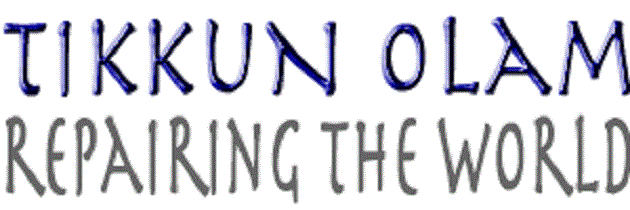Two years ago this week I had a fall riding my bike that resulted in, among other things, 30 stitches over my right eye. One of the beauties of blogging is that literally everything can turn into a blog post–here’s what I wrote about a month after the mishap. Enjoy!
My crappy June began with a crash on my bicycle that resulted in a six-hour stay in the emergency room, thirty stitches over my right eye, and a forced two-week hiatus from bike riding. Jeanne alternated between holding my hand and taking pictures while I got stitched up, pictures that she texted to the immediate family and that I still have not looked at. I took my first look a couple of days later when back in the ER waiting for my stitches to be checked out (only two hours this time); I resembled a botched Frankenstein’s monster job. I’ll spare you a picture.
Within two weeks, everyone was remarking that I looked a lot better than they thought I would that soon after the crash. Now, a bit over a month later, only those who know about the accident can even tell that it happened from looking at me. My brother, a recently retired surgeon, commented that given what I looked like on the day of the crash, the doctor who stitched me up had done a “spectacular” job. Know who else did a spectacular job? My body, my own personal version of an amazing self-repairing machine.
We live in a world that is broken in many ways, badly in need of repair. Persons of faith often say things like “God is in control” or “God knows what God is doing” when the innumerable ways in which our world is damaged are raised for discussion, the implication being that if God is God, an all-powerful Creator and all that, then either creation is a self-repairing creation like the human body (within limits), or we should expect God to step in and fix things.
But it doesn’t work like that—nor is it intended to. I am reminded of a comment on this blog a while ago from a former Christian who had converted to Judaism several decades earlier.
As I’ve explained to some of my evangelical Christian friends who I went to high school with in Alabama, I chose Judaism because it allowed me the freedom to question the tenets of my faith without any repercussions from other Jews because there is such a broad spectrum of beliefs within Judaism from atheism to orthodoxy. What unites Jews as a people of faith is not their theological beliefs or political persuasions but their worldview and values regarding the dignity of all people and their commitment as the Chosen People to honor Abraham’s covenant by serving as partners with God to do their part to make this world a better place for all humankind, what in Hebrew is called “tikkun olam” (תיקון עולם) or “repair of the world”.

Although I hadn’t thought about it for a while, I am very familiar with “tikkun olam” and find it to be one of the most fruitful concepts when thinking about God that I have ever encountered. I also believe that there is a similar concept in Christianity, if one knows where to look for it. I call it “incarnation.”
Rabbi Abraham Heschel once said in an interview that “There is a partnership of God and men. God needs our help.” This is not an exclusively Jewish sentiment; at the heart of Christianity lies the amazing idea that the way God chooses to be in the world is through human beings. I was taught that the Incarnation—God becoming human—was a one-time historical event, but the truth of the matter is that the divine strategy of God engaging with the world in human form continues. In us.
Benedictine sister Joan Chittister expresses it well:
God did not finish creation; God started it. Its ongoing development God leaves to us. What we do in life makes us the hands of God in living flesh and blood.
Elsewhere, she expands on the idea:
Having made the world, having given it everything it needs to continue, having brought it to the point of abundance and possibility and dynamism, God left it for us to finish. God left it to us to be the mercy and the justice, the charity and the care, the righteousness and the commitment, all that it will take for people to bring the goodness of God to outweigh the rest.
I have found that this proposed collaboration between divine and human exhilarates some and causes others to check their heresy meter.
Understanding incarnation as a continuing divine strategy rather than a one-time deal requires rethinking some characteristics that Christians have traditionally attributed to God—particularly omnipotence. Claims such as “God needs our help” and “God leaves it to us” require some explanation if God is all-powerful and can do whatever God chooses to do.
But perhaps power is not the primary motivating factor for the divine. Simone Weil argues that the very act of divine creation was also an act of diminishment, even abandonment. Out of love, God chooses to withdraw from direct intervention in our world, choosing rather to be in the world through the free choices and actions of human beings. Annie Dillard summarizes Weil’s insight as follows:
Mostly, God is out of the physical loop . . . Simone Weil takes a notion from Rabbi Isaac Luria to acknowledge that God’s hands are tied. To create, God did not extend himself but withdrew himself; he humbled and obliterated himself, and left outside himself the domain of necessity, in which he does not intervene. Even in the domain of souls, he intervenes “only under certain conditions.”
In Weil’s own words, “the absence of God is the most marvelous testimony of perfect love.”
I teach this aspect of Weil’s thought frequently. My students invariably find the idea of a God who out of love chooses diminishment in power to be challenging, to say the least. Yet the evidence for such an interpretation is at the heart of the Christian narrative. God became human and lived a human life in humility and weakness; from within these parameters, parameters that define all of us, the world was changed forever.
The commenter on my blog closed by reacting to a different essay from a while ago.
As a Jew I have the kind of Socratic faith that you have and which you so eloquently explained in one of your blogs. It may not always feel like it to you, but I believe you are doing God’s work, whether there is a God or not. Your brand of Christianity makes me want to believe that there is.
Thanks, I needed that.













